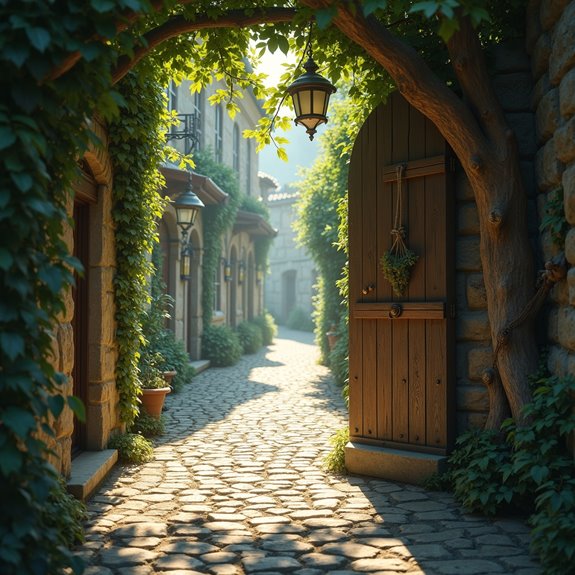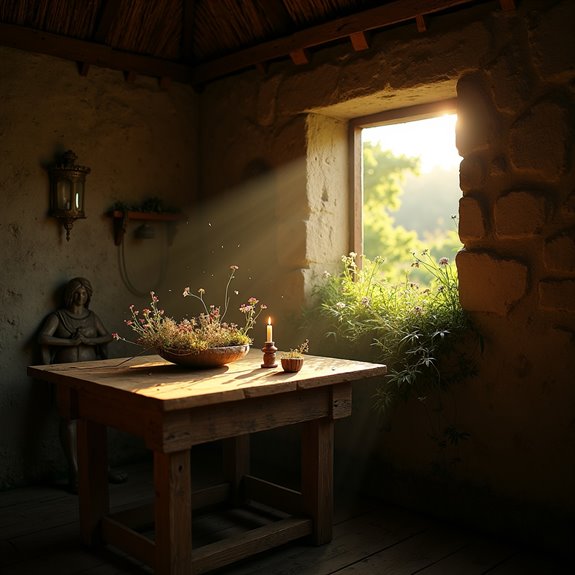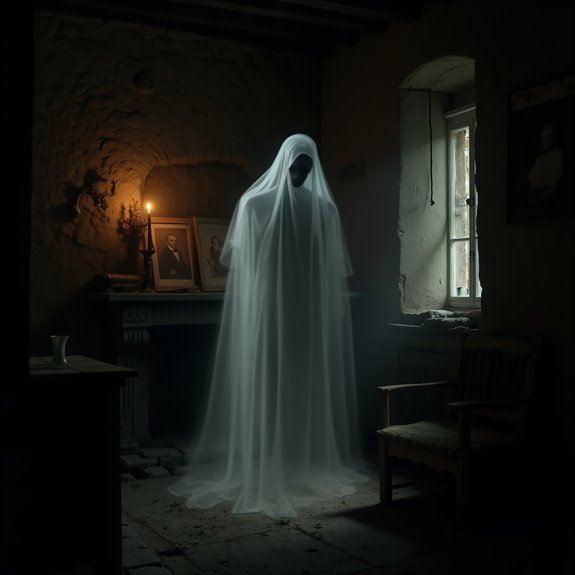Do Household Spirits Still Linger in Europe?
In many rural communities across Europe, belief in household spirits remains strong, offering comfort and a sense of continuity. Families uphold traditions through rituals and offerings, often sharing stories of encounters with these mysterious entities. While modern life has shifted perspectives, the presence of these spirits in daily life prompts intriguing questions. What do these traditions reveal about cultural heritage, and how might they impact contemporary family dynamics? The answers might surprise you.
Introduction

Household spirits, often seen as the guardians of the home, play a significant role in European folklore and culture. These entities, known by various names across different regions, embody the connection between human families and their living spaces. They’re thought to protect homes from negative energies and misfortune, ensuring prosperity and harmony. Often depicted as benevolent beings, they’re believed to thrive on respect and offerings from family members. Rituals, such as lighting candles or leaving out small gifts, strengthen these bonds. While modern lifestyles may push these traditions aside, many still hold onto the belief that these spirits linger, providing comfort and a sense of continuity. This enduring presence illustrates the deep-rooted respect for ancestral wisdom and the unseen forces in their lives.
Rural Folklore and Traditions

In many rural communities across Europe, local folklore and traditions surrounding household spirits manifest in unique and vibrant ways. Families often engage in rituals to honor these entities, believing that doing so brings prosperity and protection. In some cultures, specific offerings, like bread or milk, are left out to appease the spirits, while others tell tales about their mischievous antics around the hearth. Seasonal festivals also play a significant role, as traditions are passed down through generations. Elders share stories that reflect the community’s relationship with these supernatural beings, blending history with moral lessons. Such practices not only preserve cultural identity but also foster a sense of unity among residents, ensuring that the legacy of household spirits continues to thrive.
Notable Cases or Sightings

Throughout Europe, various notable cases and sightings of household spirits have captured the imagination of locals and historians alike. In a quaint cottage in the English countryside, residents reported nightly sounds of footsteps, attributed to a benevolent spirit said to protect the home. Meanwhile, in a Scottish inn, guests claim to have seen the ghostly figure of a woman who guarantees comfort and warmth by rearranging blankets on cold nights. In Italy, an ancient villa holds tales of a playful spirit that reportedly mischievously hides objects. These accounts, from gentle nudges to soft whispers, highlight the persistence of household spirits in European culture, weaving a rich tapestry of folklore that some still believe inspires a connection to the past.
Common Theories or Explanations
Many communities have pondered the existence of household spirits, leading to various theories and explanations about these enigmatic entities. Some believe that these spirits symbolize the ancestral connection between families and their homes. This idea suggests that household spirits protect the living, fostering a sense of safety and continuity. Others argue that sightings stem from psychological phenomena, such as pareidolia, where individuals perceive patterns and figures in ordinary settings. Additionally, cultural traditions play a significant role, as different societies attribute unique characteristics and stories to their household spirits, molding perceptions over centuries. Skeptics often claim that these spirits are mere products of folklore, driven by humans’ innate desire to explain the unexplainable.
Frequently Asked Questions
What Role Do Household Spirits Play in Modern European Culture?
Household spirits serve as cultural symbols, connecting people to traditions and beliefs. Many still celebrate their presence through festivals, stories, and rituals, reinforcing community bonds while nurturing a sense of heritage and familial connection.
How Do Households Typically Honor or Appease These Spirits?
In many households, families set out offerings like food, drink, or flowers, hoping to honor or appease their household spirits. They often create rituals or celebrations to express gratitude, ensuring harmony and protection within their homes.
Are There Specific Rituals for Invoking Household Spirits?
In many cultures, families invoke household spirits through specific rituals, like lighting candles, offering food, or reciting prayers. These practices help create a connection, inviting protection and blessings from the spirits residing within their homes.
Do Household Spirits Differ by Region in Europe?
Household spirits indeed differ by region in Europe. In rural Italy, they’re often associated with farming, while in Eastern Europe, they may protect homes. Each culture’s traditions shape the characteristics and customs surrounding these spirits.
How Can One Identify Signs of a Household Spirit’s Presence?
One can identify signs of a household spirit’s presence through unexplained noises, cold spots, or moved objects. They’ll notice flickering lights, changes in temperature, and even the occasional sweet scent in the air.


